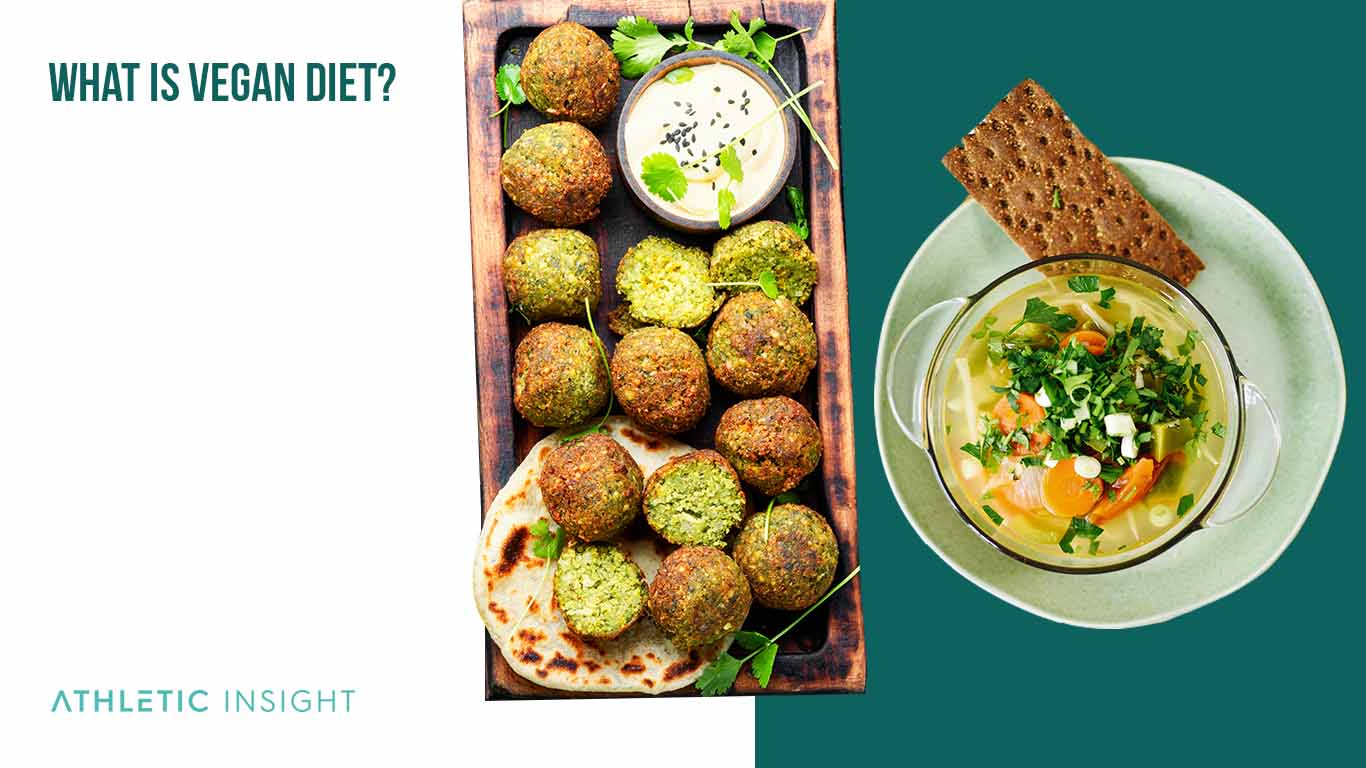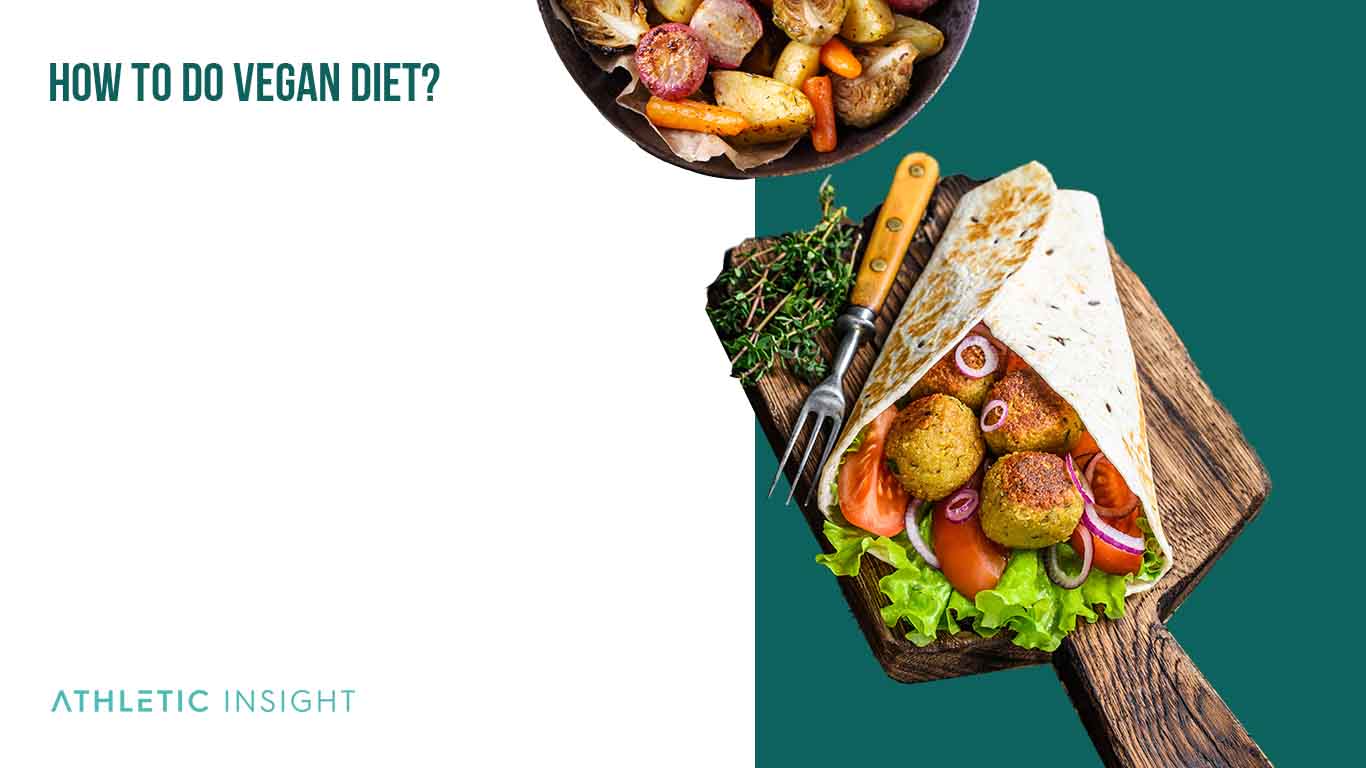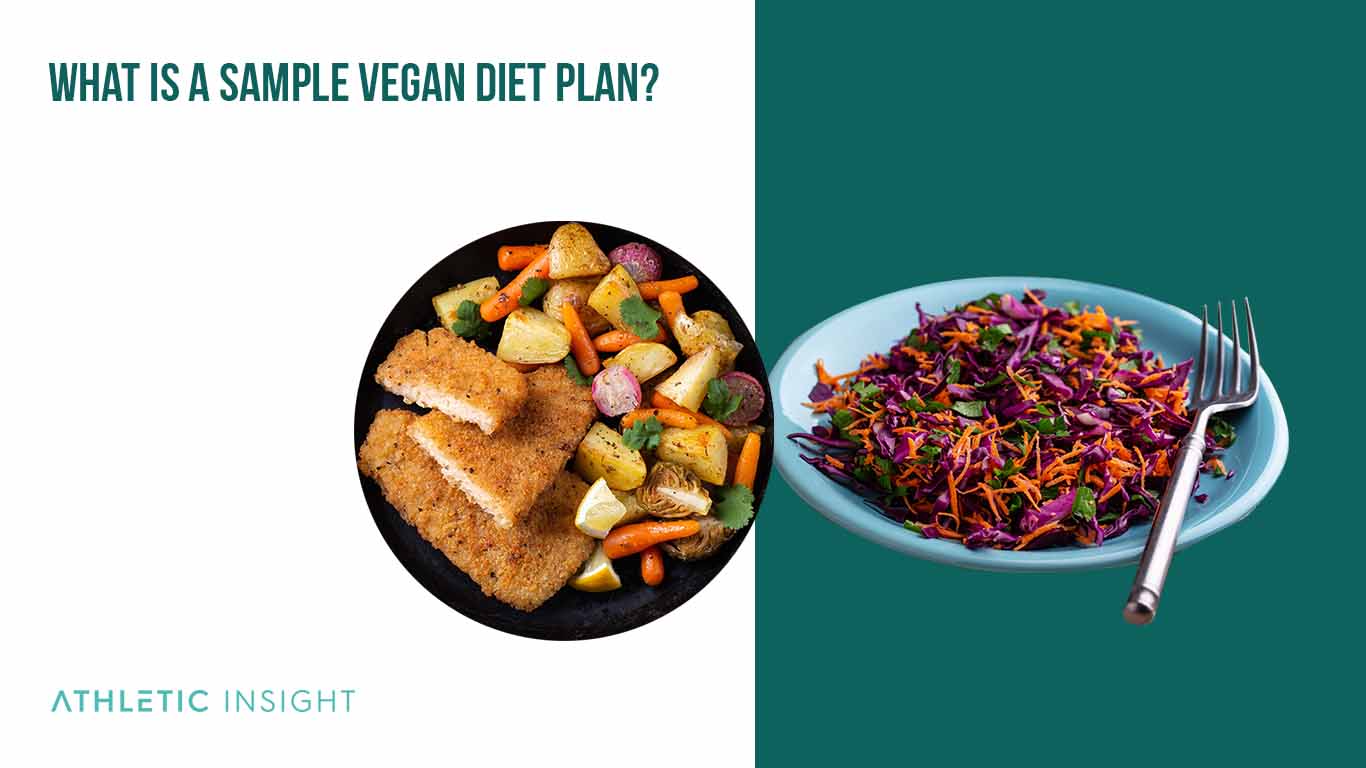A vegan diet involves abstaining from all foods and products derived from animals such as meat, fish, dairy, milk products, eggs, honey, and more. Many vegans also extend their lifestyle to clothing and products made from or by animals.
Studies show that a vegan diet has numerous health benefits as meat and animal products contain various chemicals, preservatives, and toxins. A vegan diet can help in losing weight, lower cholesterol, and reduce the risk of heart disease, certain types of cancer, and chronic illnesses.
There are different types of vegan diets, including dietary vegans who stick to plant-based foods without making lifestyle changes, and whole and raw food vegans who consume non-animal products in those categories. However, not all vegans are healthy as some “junk food” is technically vegan, and consuming it can lead to health and weight problems.
What Is a Vegan Diet?
A vegan diet prohibits consuming any food made from or by animals. The vegan diet’s meaning is to avoid causing pain to other living, sentient beings and not to pollute your body by consuming them.

Although there are several types of vegans (see above), they mainly fall into two categories: ethical and health vegans. Both diet plans adhere to a strict vegan diet, eliminating all animal products.
The key difference is their motivation. Health vegans switch their diets because they experience vegan health benefits in their bodies. Ethical vegans change their diets because they believe animals’ suffering is significant, want to fight the devastating effects of factory farming on the planet, or both.
In most cases, ethical vegans also won’t carry or wear leather, fur, snakeskin, or other items made from animals. They avoid beauty products with animal ingredients and items tested on animals.
How Does a Vegan Diet Work?
A vegan diet is beneficial for all the systems and organs in your body, improving your overall health and quality of life. One of the benefits about a vegan diet is that you do not try to reduce your volume of food or caloric intake. Instead, you look to replace unhealthy animal products with vegan alternatives.
Most new vegans start incorporating more healthy foods–such as whole grains and nuts–into their diet. By eliminating harmful foods and adding healthier ones, you’ll notice the benefits within days, although others will take longer to appear.
Suddenly introducing tons of fruits and vegetables can cause digestive upset, which is why some people gradually eliminate animal products from their diet. Over time, vegans tend to have healthier microbiomes in their guts. That means less pain and discomfort.
What Are the Health Benefits of a Vegan Diet?
The most important benefit of a vegan diet for many people is weight loss, which happens even if you don’t reduce your caloric intake. Vegan diets tend to be low in fat, especially saturated fats.
Over time, vegans tend to shed pounds, mainly in the form of excess body fat. While it takes a little longer to lose weight with veganism than on a crash diet, vegans drop pounds in body fat, while some crash diets cause muscle loss.
What Are the Health Risks of a Vegan Diet?
The vegan diet has only a few health risks. Vegans just have to be careful about a few vitamin and nutrient deficiencies, but these risks can be avoided with proper supplementation.
Animal products are optimal sources of B vitamins, particularly B-12. When you switch to the vegan diet, you’ll need a B-12 supplement. When you have blood drawn for your annual physical, ask your doctor to check your other B vitamin levels.
Many people rely on meat and other animal ingredients for protein, but vegans have many choices for protein. Several companies have begun making vegan alternatives to chicken, hamburgers, sausages, fish, and much more. There’s even protein in broccoli which is an incentive for most people that dislike it.
Many are made from high-protein bases, such as soy or plant protein. In addition, there are an array of vegan protein powders and fortified foods from which to choose.
Finally, doctors sometimes warn vegans about low calcium. Many of our calcium-rich foods come from milk and dairy, which means they’re off-limits for vegans. Instead, look for fortified cereals and juices (especially orange juice) or take a calcium supplement.
How To Do the Vegan Diet
Rather than switch all at once, you should consider slowly transitioning to a vegan diet, especially if your current diet has a lot of animals in it. Otherwise, you could shock your system and encounter stomach pain.

Try phasing out animal products in this order. You can take as long as you need and adjust your speed according to how your body reacts.
- Phase 1: Eliminate red meat and pork (incorporate plant-based proteins and main dishes)
- Phase 2: Eliminate chicken and poultry (adding plant-based items)
- Phase 3: Fish and shellfish
- Phase 4: Cheese (there are yummy vegan cheese alternatives)
- Phase 5: Other dairy products, including ice cream, cream cheese, butter, and so on
- Phase 6: Eliminate eggs
- Phase 7: Learn about “sneaky” animal products in ingredient listings (like confectioner’s glaze in candy) and eliminate those foods, too.
The vegan diet does not stipulate a certain number of calories. Some people don’t reduce their caloric intake when they switch—weight loss results from eating healthier foods and eliminating harmful elements in animal products.
The vegan diet is intended to be a lifestyle change. That means that you technically never stop being on the vegan diet. As more people switch to this way of living, more vegan articles are published, and products come on the market.
If you’re testing the vegan diet, you should try it for at least six months to feel the full benefit. Especially if you add a light exercise routine, you could experience higher energy, better mental clarity, and more benefits and weight loss.
Luckily, if you decide to make the switch permanent, the best practices of the vegan diet are simple: no animal products.
What Are the Foods That You Can Eat While on a Vegan Diet?
Even though a vegan diet can be limiting, you can still eat many foods, some of which you might not expect. Keep a vegan diet food list handy during your first few weeks. Some common vegan foods are as follows.
- Tofu
- Nuts and seeds
- Nut butters
- Beans and lentils
- Rice and pasta
- Bread made without eggs or milk, such as sourdough
- All vegetables and fruits
- Oreos
- Sour Patch Kids
- Most brands and flavors of potato chips (look for animal ingredients in BBQ flavor especially)
- Tortilla chips, salsa, and guacamole
This list is certainly not exhaustive. You can also join online vegan communities or follow vegan social media accounts to help you discover more vegan products.
Many brands have begun making vegan versions of non-vegan foods. There’s vegan cheese, hamburgers, ice cream (or “nice cream”), sour cream, vegan eggs, and many more.
There are also vegan bakeries and restaurants in most cities cooking tasty, cruelty-free fare that even meat lovers will enjoy. See if your city has options for you.
What Are the Foods You Should Avoid on a Vegan Diet?
One of the nice things about veganism is that it’s relatively easy to figure out, and you don’t need to do any counting. Still, there are many foods that you must avoid to get all the vegan diet benefits.
- Meat
- Poultry
- Fish
- Shellfish
- Milk
- Dairy cheese
- Goat cheese
- Eggs
- Butter
- Honey
- Gelatin (an ingredient in many gummy candies)
- Confectioner’s glaze (also a common candy ingredient)
If you follow veganism primarily for ethical reasons, there are other foods to consider eliminating. One of them is palm oil since its manufacture often destroys habitats and kills animals.
Who Should Do a Vegan Diet?
A vegan diet is appropriate for most people, but you must ensure you make up for the vitamins you’ll miss by not eating animal products. If you suffer from one of the following or a related condition, you need to be especially careful.
- Anemia
- Certain autoimmune diseases
- Crohn’s, Colitis, and related conditions
- Diabetes (primarily Type 1)
- Eating disorders
- Kidney failure
Pregnant women must also be cautious if they choose to become or remain vegan. The fetus needs a lot of vitamins to thrive and develop healthily. In particular, Vitamin B-12 is essential in gestational growth, but you can’t consume enough of it from plant ingredients. All vegans, pregnant or not, should take a B-12 supplement, but pregnant people need to be especially careful.
People are attracted to veganism for three primary reasons: it’s good for your health, it’s better for the environment and reduces ecological destruction, and it prevents cruel treatment of animals. Many vegans hold beliefs around all three.
A vegan diet is not required for any one person and every person’s body is different. However, some people with autoimmune disorders, digestive/intestinal issues, allergies, and other health conditions turn to vegan benefits. They find that veganism is a critical piece to managing their illness.
Finally, there is a highly effective vegan bodybuilding diet that many competitive athletes have adopted. If that’s you, it’s certainly worth considering.
How Easy is the Vegan Program to Follow?
The vegan program is simple to understand but not always as easy to follow. As you adapt to veganism, you’ll learn which foods and ingredients you can or cannot eat very quickly.
You’ll also figure out which foods are likely to contain animal ingredients. For example, a birthday cake probably includes eggs. Potato or pasta salad probably has mayonnaise. And therein lies the difficulty of following a vegan diet.
Depending on where you live and who you spend time with, social situations occur where you can eat little or nothing. You might also have trouble sharing plates or appetizers if you don’t have vegan friends (or friends willing to try vegan food).
Also, non-vegans often don’t understand veganism, let alone how to cook vegan food. If you dine at someone’s house, you should be prepared to eat non-vegan food or have an awkward moment with your host.
Vegans primarily concerned with ethics have less of a problem following these strict guidelines. For those who become vegan for health benefits, it can be as challenging to maintain as any other diet. It’s easy to think that cheating once doesn’t matter, but the problem is that most of us don’t stop with one.
What Are the Important Rules of a Vegan Diet?
One thing that makes veganism great is that there’s only one rule: do not consume any foods or products made from or containing animal-derived ingredients. Primarily, this rule applies to food. As discussed, ethical vegans avoid them in all other products, including clothing and beauty.
Health vegans consider eliminating beauty products, vitamins, and anything else with animal ingredients. After all, the toxins and chemicals you’re trying to avoid can get in through your skin.
What Is a Sample Vegan Diet Plan?
Since all vegans eat differently and will eat their own vegan diets, there are seven breakfast, lunch, dinner, and snack ideas.

Vegan Breakfasts:
- Overnight oats with fruit, nuts, dark chocolate, or other toppings
- Cereal and oat milk: Life, Puffins, Oat Crunch, and others are vegan
- Vegan pancakes or waffles
- Fruit smoothie with plant protein powder
- Banana bread with almond butter
- Tofu or Just Egg scramble with onions, peppers, and other vegetables
- Vegan home fries or breakfast potatoes with soy bacon
Vegan Lunches:
- Caesar salad with vegan salad dressing, croutons, and non-dairy parmesan
- Peanut butter and jelly sandwich on vegan bread with an apple
- Tempeh sandwich
- Bean and rice burrito without cheese
- In a hurry? Burger King carries vegan Impossible burgers and fries.
- Buffalo tofu wrap
- Hummus on crackers with baby carrots and other fresh chopped veggies
Vegan dinners:
- Spaghetti with meatless meatballs and marinara sauce
- Black bean burger and fries
- Vegan ravioli (Kite Hill makes a yummy option)
- Vegan pad thai with tofu
- Chickpea curry over brown rice
- Buddha bowl
- Portobello mushroom tacos
Vegan snacks and desserts:
- Oreos! You can also find vegan versions of virtually every kind of cookie.
- Mixed nuts with dried fruit or vegan trail mix
- Almond milk yogurt with granola and agave syrup
- Sour Patch Kids and Swedish Fish
- Avocado toast
- Many Clif, Kind, and other granola bars are vegan
- Ants on a log: celery with peanut butter and raisins
What Are the Best Recipes for a Vegan Diet?
What is a vegan recipe? Vegan recipes are rather similar to regular recipes, but they leave out or use substitutes for animal ingredients. Check out these five delicious recipes for vegans.
- Sticky and Spicy Baked Cauliflower: If you miss sticky Asian sauces, this will hit the spot. Plus, the cauliflower crisps in the oven, so it’s healthier.
- Butternut Squash Stuffed Shells: Spinach ricotta, caramelized squash, and cashew cream make these irresistible.
- Bean and Potato Vegan Enchiladas: Use sweet potatoes, russet potatoes, and many other plant-based ingredients. You won’t miss the cheese!
- Sticky Tofu Bowls: Just the right amount of spicy and sweet; these tofu bowls pack tons of protein and are easy to make for weeknights.
- Vegan Creamy Italian Gnocchi Soup: Perfect for a cold night, this thick soup will fill and warm you with plenty of veggies.
What Are the Facts About the Vegan Diet?
- Naturally low in saturated fat and cholesterol. Vegan foods tend to have fewer harmful elements.
- The first week: the first week of being vegan, you may notice a boost of energy. Although there may be initial stomach upset, you’ll find that your digestive system works better.
- The vegan diet is one of the best for weight loss, especially for long-term sustainable weight loss.
- Eating vegan is one of the most environmentally friendly diets you can follow.
- Each vegan saves 30 animals every year.
How Much Does the Vegan Program Cost?
Since veganism isn’t a program that you subscribe to, the costs can vary depending on what foods you like and even where you live.
However, meat and dairy products cost a lot, too. You can expect a healthy vegan diet to cost several hundred dollars upfront as you replace vegan staples in your kitchen and pantry. After that, it should cost about the same as your current diet.
What Are the Alternatives to a Vegan Diet?
The best alternative to a vegan diet would be a vegan-leaning vegetarian. Under this scenario, you would not eat animals themselves but would occasionally have cookies made with eggs or pancakes made with milk.
- Flexitarian Diet
- Vegetarian Diet
- Thrive Diet
What Does a Vegan Diet PDF Provide?
There is no official vegan diet plan. There are many guides and books that you can find for sale at bookstores or online.
How to Find 3D Vegan Diet Printable Plan?
Many vegan bloggers post vegan diet printables that you can utilize. Just search online and you’ll find downloadable vegan diet plans that you can print.
Is Being Vegan Healthy?
Yes, being vegan is healthy. Many people have adhered to a vegan diet for decades and are in excellent health. You must be diligent about getting enough vitamins and nutrients (particularly protein and Vitamin B-12).
Still, if you monitor your intake, veganism is very healthy for most people. Many lose weight and report improvements in their sleep, mental health, and more. Give the vegan diet a try to see if it works for you.



